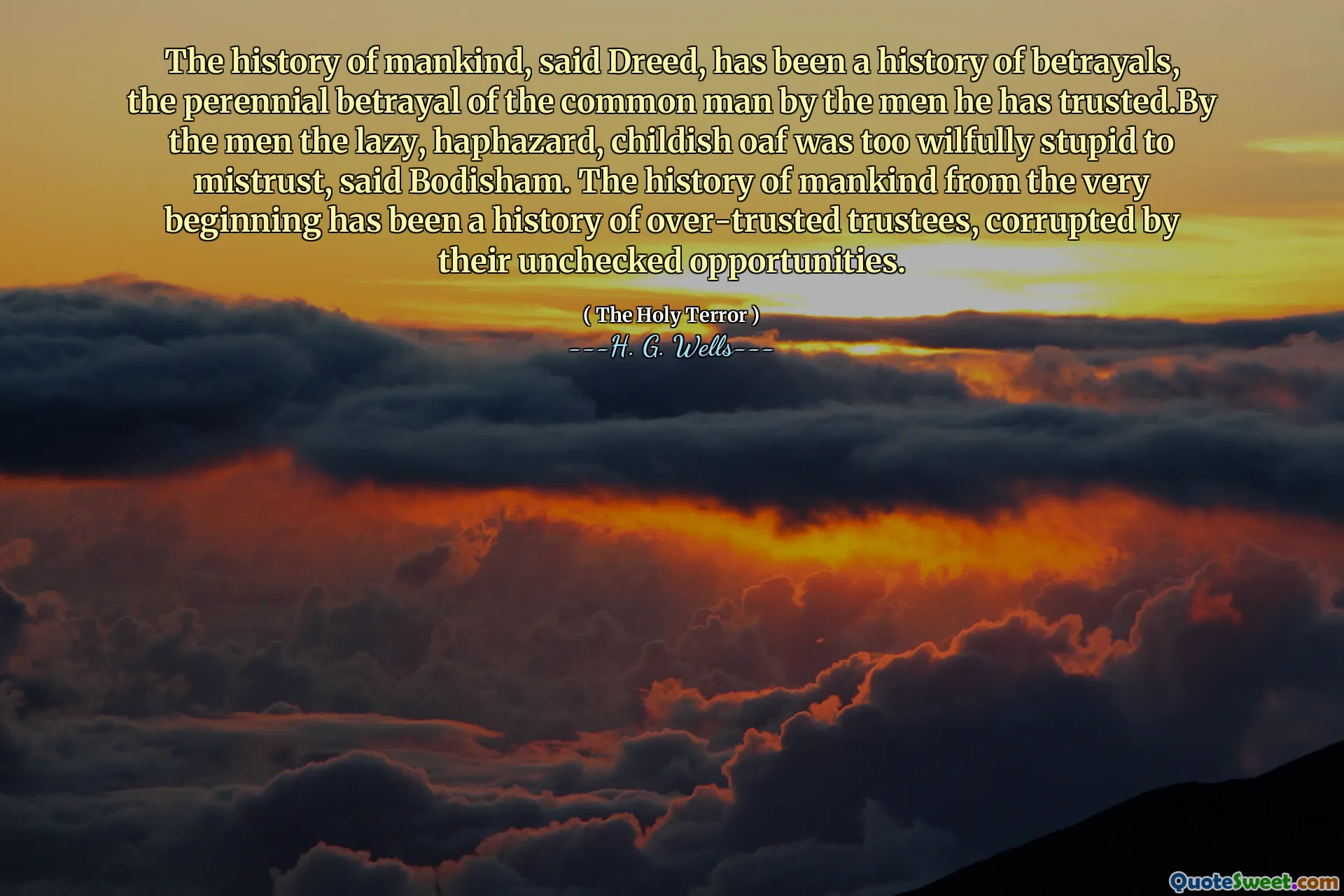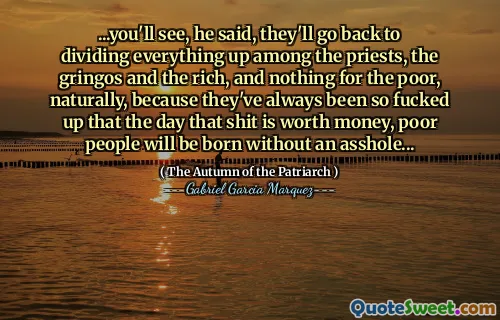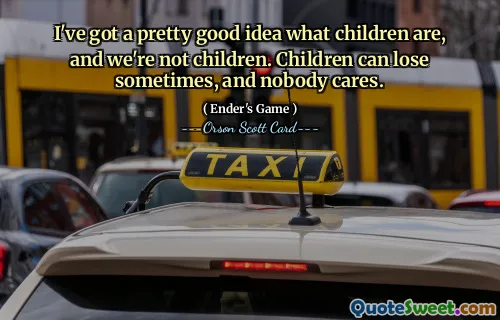
The history of mankind, said Dreed, has been a history of betrayals, the perennial betrayal of the common man by the men he has trusted.By the men the lazy, haphazard, childish oaf was too wilfully stupid to mistrust, said Bodisham. The history of mankind from the very beginning has been a history of over-trusted trustees, corrupted by their unchecked opportunities.
Dreed reflects on the recurring theme of betrayal throughout human history, emphasizing how ordinary individuals have consistently been let down by those in whom they placed their trust. He highlights the idea that these trusted figures often exploit their positions, leading to widespread disappointment and disillusionment among the masses.
Bodisham adds to this perspective by criticizing the common man's failure to be skeptical of those in power. He suggests that the lazy and uninformed nature of many people allows corrupt trustees to thrive, perpetuating a cycle of betrayal and manipulation throughout history. This conversation underscores the dangers of misplaced trust in leadership and the consequences that arise from it.







